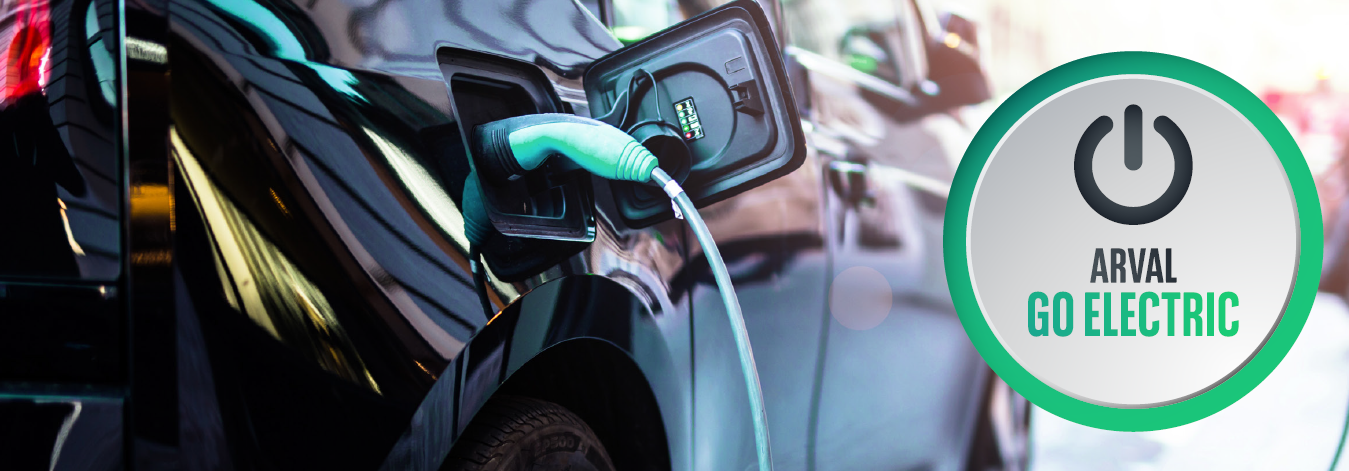Reducing emissions from transport is one of the most important challenges in achieving climate neutrality. This is one of the areas that, despite the increase in awareness and taking numerous actions, is still having a negative impact on the environment – it is responsible for up to a quarter of the total emission . How is electromobility developing in Poland? What should be done to speed up this process?
Although 27 European Union countries by 2019 reduced their total emissions by 24% compared to 1990, this is mainly due to the increase in energy efficiency and the implementation of numerous restrictions in industry. During the same period (1990-2019) emissions from passenger cars have grew by as much as 24% .They are also responsible for 61% of transport emissions in the EU – so solving this problem will be a breakthrough in the fight against global warming.
The question is not “how” but “when”
Numerous measures have been taken to counteract this. One of the goals of the European Green Deal is to reduce transport emissions by 90% by 2050. To achieve this goal, the European Commission has adopted a strategy for sustainable and intelligent mobility (“ Sustainable and Smart Mobility Strategy “). It aims to increase the use of zero-emission vehicles, provide EU citizens and businesses with access to sustainable alternative transport solutions, promote digitization and automation, and improve connectivity as well as access to infrastructure. One of the direct tools leading to the achievement of ambitious goals is the introduction of increasingly more stringent exhaust emission standards, which in practice will lead to the displacement of combustion cars in manufacturers’ ranges by electric and hybrid vehicles. The current Euro 6d ISC-FCM standard sets the threshold for acceptable CO2 emissions at 95 g / km a > – producers who do not keep to it are forced to pay EUR 95 for each additional gram. In 2020. the average emissions were 107.8 g / km – this means that the average fine for each car sold in Europe was € 1,216. The new Euro 7 standard, expected to enter into force in 2025, will further tighten these requirements. The automotive industry has undertaken a number of activities to meet new expectations and challenges.
“ Our brand aims to achieve full carbon neutrality by 2050 at the latest – one of the elements of this plan is the assumption that we will stop selling new combustion cars by 2035. We inseparably tie the future of Volkswagen with electromobility, we regularly introduce new, fully electric models from the ID family to our offer. At the same time, our portfolio includes plug-in hybrid cars, which are a bridge solution for people who have not yet made the decision to choose a fully electric vehicle “- says Hubert Niedzielski, Volkswagen PR manager strong >.

Poland vs the EU
In the first half of 2021, 2486 electric cars and 4479 plug-in hybrids were sold in Poland.. Poland is currently near the bottom of the list in terms of transitioning to zero emissions vehicles in Europe. In Germany alone, 148,936 electric cars were sold during this period. In 2020, the share of BEV (zero-emission) and PHEV (plug-in hybrid) cars in total sales in Poland amounted to 1.9%, while the EU average is 10.9%. Why is this difference so signficant?
Barriers to the development of electromobility: not only related to costs
Although the situation is changing dynamically, customers’ resistance to purchasing an electric car is still high. One of the reasons is the relatively high price of zero-emission cars compared to their internal combustion alternatives. The government has a key role to play in this area.
– In Poland, a comprehensive e-mobility support system from public funds has finally begun to take shape. The “ Mój Elektryk ” program, which provides subsidies for zero-emission vehicles both for individuals, enetrepreneurs as well as businesses and other institutional entities – says Łukasz Witkowski , Operations Director at the Polish Alternative Fuels Association .

As part of the program, you can get funding of up to 27,000 zloty. It is used by, among others by companies providing long-term rental services. Thanks to this programme, the competitiveness of the deal may come as a surprise – – for ex. the monthly installment for a Tesla vehicle may be lower than in the case of a combustion engine car. This is especially important given the costs of using and maintaining electric cars are lower than in the case of internal combustion engine cars. The ELAB – City of Clean Transport study conducted by the Polish Alternative Fuels Association (PSPA) showed that, thanks to the public support system, the TCO (total cost of ownership) of electric cars may turn out to be lower than in the case of their combustion counterparts even as soon as within a year of starting this transition.
Range
Another aspect is autonomy, which mainly comes down to range. The currently used technologies, depending on the capacity of the batteries, allow you to drive an average of 250-450 km on a single charge. In the case of everyday use of a car in the city, this is enough, but for longer journeys this is a big problem. This is especially discouraging for those people for whom the electric car would be the only car used and those who do not have an effective power source in their place of residence (e.g. a Wallbox station at home). And the level of publicly available infrastructure for charging electric cars in Poland is still very poorly developed.

Infrastructure development in Poland is still lagging
At the end of March 2021, there were 1,425 public stations in Poland charging electric vehicles . 33% of them were fast charging stations with direct current (DC), and 67% – slower chargers (AC) with a power of up to 22 kW. For comparison, according to EAFO data (European Alternative Fuels Observatory) at the end of 2020 in There were 44,538 stations available in Germany, and as many as 66,665 in the Netherlands. This disproportion may increase – authorities in Germany have declared that by 2030 there will be one million charging stations in their country .
The key factor activating the development of infrastructure is the creation of appropriate legal conditions facilitating the installation of both public and private charging points.
– After the notification of Polish regulations by the European Commission, NFEPWM announced the launch of the instrument “Support for electric vehicle charging infrastructure and hydrogen refueling infrastructure”. Moreover, in the first quarter of 2022, the fourth edition of the “Mój Prąd” program is to start. This time, it will also include subsidies to private charging points. Another important event is the amendment to the Electromobility Act. Here, however, it should be noted that – just like in the case of the support system – it comes into force with a definite delay. The amendment will introduce a completely new perspective for the development of private infrastructure in in connection with the implementation of directive 844 .
New buildings – both public and residential – will have to be prepared for the development of electromobility. In existing buildings, it should be easier to install a charger after the new regulations come into force. Changes – although definitely insufficient to meet the market needs – will also be introduced in the area of generally accessible infrastructure. However, there is still a lot to do here, for example in terms of accelerating the connection process. – notes Łukasz Witkowski from PSPA .

– This is the last moment to implement comprehensive measures to support electromobility. The end of conventional vehicles is imminent, as the COP26 conference in Glasgow confirmed. During the event, Poland signed an agreement according to which by 2035 the sale of passenger cars and vans with internal combustion engines is to end. This is the first such official statement of the Polish government administration in history – he adds. It is important that declarations are followed by specific legal acts, and that support systems are consistently developed.
Overcome difficulties
Entities providing long-term rental services play an important role in overcoming the limitations related to the energy transformation in the automotive industry. These companies, however, develop services aimed at encouraging customers to switch to green solutions.
– The results of this year’s the Arval Mobility Observatory Fleet Barometer indicate that the main barrier to the development of electromobility of Polish fleets is the high price of electricity vehicles, as well as insufficient charging infrastructure. Fortunately, these barriers have now been overcome. Renting an electric car with co-financing under the “Mój Elektryk” program, which we launched as one of the first companies in the Car Fleet Management industry, means that customers can take advantage from as little as 300 to 800 PLN per month. This allows you to use a zero-emission car cheaper than its combustion counterpart. We also try to break down existing barriers, e.g. through specially designed services. As part of the Arval GO ELECTRIC package, our customers can test electric vehicles, rent a car in a set with a charger or get a replacement combustion car for longer trips – says Robert Antczak, general director of Arval Service Lease Polska . – I am convinced that with the gradual elimination of barriers to the development of electromobility, entrepreneurs and fleet managers will notice the most important advantages of electric cars: lower fuel and repair costs, driving comfort, and above all, a significant reduction in the negative impact on the environment – he adds.

Despite the difficulties and obstacles hindering the green transformation in the automotive industry, experts forecast dynamic growth both in terms of the share of electric cars in sales and infrastructure. – The development of electromobility on a larger scale is inevitable. From the latest edition of the PSPA cyclical report “ Polish EV Outlook ” shows that by 2025, up to 516 thousand electric cars and vans will appear in Poland (today there are about 34 thousand of them). In turn, the network of publicly available charging points will increase from approx. 3.4 thousand. up to 43 thousand – says Łukasz Witkowski from PSPA .
The leading role of companies in the electromobility transformation
The role of the leader of the energy transformation in the Polish automotive industry should naturally be assumed by companies. Why? In the first half of the year, 243,113 passenger cars were sold in our country, 73.8% of which went to companies. Food for thought is also analysis by EY and Eurelectric – although fleets account for only 20% of the car market in Europe, due to amongst other, their intensive use as they generate as much as 50% of emissions generated by road transport. The change in the business approach to electromobility will therefore be a key factor that will determine the effectiveness of the energy transformation on the Polish automotive market. According to the authors of the Arval Mobility Observatory Fleet Barometer , 18% of companies in Poland already have an electric car in their fleet. Last year, this ratio was only 3%, so the progress is very noticeable. As predicted, in three years’ time such cars will be used by every second company in our country.
– Since 2018, Arval has been globally supporting its clients in the energy transformation of fleets, including through the SMaRT consulting program, and our global strategy – Arval Beyond – assumes that by the end of 2025 we will have as many as 500,000 electrified vehicles in rental, which constitutes 25% of the entire fleet. In our country it is supposed to be 25 thousand low-emission cars, which in the realities of the Polish market is a big challenge. We believe, however, that it is possible – says Robert Antczak from Arval Service Lease Polska .
In the state’s interest
Supporting companies in the transformation of fleets is important not only in the context of direct climate protection – it is also the strategic interest of the state. More and more companies, especially the largest international corporations, are announcing global declarations regarding the date of achieving a neutral emission balance. One of the key measures to achieve this goal is to abandon (at least in part) the use of combustion-powered cars. Therefore, it can be expected that the same guidelines will apply to the Polish branches of these companies. Lack of appropriate infrastructure may then significantly hinder the functioning of these companies, and thus become one of the factors influencing decisions on locating investments in Poland. The rapid development of the charging station network may have a similar effect to the dynamic development of the motorway and expressway network initiated in the last decade – including thanks to him there was an explosion of foreign investments in our country. This should give the rulers food for thought.
Edited by:

Tomasz Bułhak – Chief Analyst, Green Europe Today
Tomasz Bułhak is currently working with the business, preparing comprehensive analyzes and providing marketing support. Actively monitors changes resulting from new trends and pro-ecological regulations and their impact on the business. For several years he worked in managerial positions in international companies from the automotive sector. He studied Journalism at the University of Warsaw.
Expert commentary:

Hubert Niedzielski – Brand PR manager Volkswagen
From April 2019, the PR manager of the Volkswagen brand at Volkswagen Group Polska. He is primarily responsible for Volkswagen’s cooperation with the media and the implementation of the brand’s PR strategy in the area of information policy. The project “Volkswagen drives electromobility in Poland”, coordinated by him, was awarded with two gold statuettes in the 18th edition of the “Golden Clips” competition (in the “Media Relations” and “Research & Insight” categories). He has been associated with Volkswagen Group Polska since 2015.

Robert Antczak – General Director Arval Service Lease Polska
Since 2019, Robert Antczak has been the general director of Arval Service Lease Polska, the largest company in the long-term car rental industry with full service. For 19 years he has been building experience in the corporate banking and leasing industry. He has been associated with the BNP Paribas Group since 2017, when he took the position of Managing Director of the Business Development and Organization Division in the area of SMEs and Corporate Banking at BNP Paribas Bank. He started his banking career in 2002 at Bank Handlowy w Warszawie S.A. (Citigroup). From 2004 to 2009, he worked there as the director of the Leasing Department. In the years 2009-2013 he was the managing director in the Corporate Banking Department at Kredyt Bank S.A. and in the years 2013-2017 the director of the Product Sales Department in the Business and Corporate Division at Santander Bank Polska S.A. and was responsible for cash management, sales of trade finance products and support for the international department. Robert Antczak is also the president of the Polish Vehicle Rental and Leasing Association (PZWLP), which brings together the largest and most important long-term rental companies in Poland and network car rental companies, he is also a member of the Executive Committee of the Polish Leasing Association (ZPL). As part of the Polish Alternative Fuels Association (PSPA), he chairs the Committee for New Mobility.

Łukasz Witkowski – Operations Director Polish Alternative Fuels Association
Vice-president and co-founder of PSPA, practitioner in the field of operational management, with knowledge of the operation of commercial companies and capital groups in the alternative fuels industry. For over a decade, he has been associated with the electro-energy sector in Poland. He has many years of professional experience, mostly in managerial and project management positions. He worked, among others in one of the largest capital groups in the power sector in Central and Eastern Europe, as well as in the largest infrastructure investments, strategic for the country’s energy security. Moreover, he managed the substantive activities of the oldest employers’ organization in Poland. At the beginning of his career, for almost 10 years he was associated with journalism. He performed, inter alia, the function of the editor-in-chief. Organizer of many congresses and industry conferences. Author of articles, reports and opinions related to the energy industry. Graduate of European Studies, Political Science, Management and Marketing. The Angel of the Social Economy in the United Nations Development Project.










